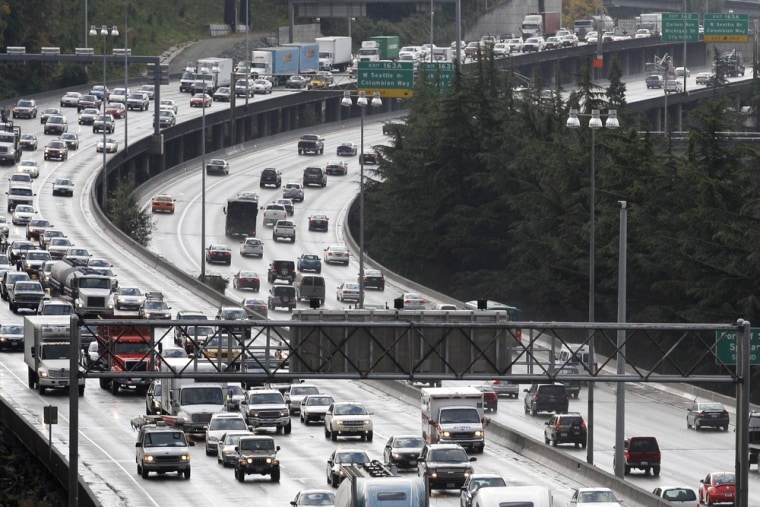The good news for commuters is that traffic congestion in the U.S. decreased by an average of 30 percent last year, according to the annual National Traffic Scorecard conducted by traffic and navigation service provider INRIX in Kirkland, Wash. The bad news is that motorists in some of America’s largest cities wasted nearly 60 hours of their lives during 2011 sitting in rush-hour jams, versus driving at times when the roads were clear.
This represents the biggest drop in road congestion since 2008 when gridlock dipped by 34 percent, due largely to the nation’s precipitous financial free-fall. Over 1,400 miles of America’s major corridors suffered congestion last year, which is down from 2,300 miles in 2010. INRIX likewise attributes last year’s easing traffic conditions to the still-sputtering economy.
“The recovery on Wall Street has not yet arrived on Main Street, which means Americans are driving less and spending less,” says Jim Bak, co-author of the National Traffic Scorecard. “What these results suggest is a ‘stop n’ go economy’ where a lack of employment combined with high fuel prices is keeping Americans off the roads.”
While it ranks as the 53rd most populous city in the U.S., Honolulu tops the INRIX rankings as having the nation’s most congested traffic corridors. The study estimates that commuters in Hawaii’s largest city waste an average of 58 hours a year during peak travel times, versus the time that would have been spent on the road had there been no congestion. That’s the equivalent of burning more than seven vacation days annually while sitting behind the wheel.
The associated slide show lists the 10 cities in America having the worst traffic jams and details the average amount of time lost forever while stuck in traffic (compared to driving when cars are at their normal pace). Surprisingly, New York City was ranked “only” fourth in the survey, with Los Angeles, San Francisco and Bridgeport, Conn. rounding up the top five cities for traffic congestion.
Nationwide, the INRIX study found that commuters on the road during peak driving times in the 100 largest cities took seven percent longer to reach their destinations than if traffic was moving freely. That figure was pegged at 9.7 percent in 2010 and is 50 percent less than the all-time-high of a 13.3-minute delay measured back in 2007, when the economy was riding high and gas prices averaged $2.80 a gallon. Cities with higher-than-average job growth like Miami, Tampa, Houston and Atlanta experienced some of the biggest increases in traffic jams, while areas that experienced the largest relative drops in congestion were subjected to the highest average gasoline prices (at their April 2011 peak) including Los Angeles ($4.25), Seattle ($4.03), San Francisco ($4.25) and Honolulu ($4.48).
Forbes.com slideshow: 10 U.S. cities with the worst traffic
For those keeping score, and/or noting when to take public transportation instead, the most gridlocked morning commute hour was determined to occur on Tuesdays at 8:00 am, with Friday at 5:30 PM being the worst evening hour for commuters. Overall, national congestion peaks each weekday morning between 7:45 and 8:00 am, with average evening congestion reaching its most-maddening point between 5:30 and 5:45 pm.
The INRIX National Traffic Scorecard was based on an analysis of 200,000 road segments totaling more than 300,000 miles of major highways, arterials and city streets nationwide, with an emphasis on the nation’s 100 largest metropolitan areas.
Forbes.com: Cities with the worst drivers
Forbes.com: Cars with the highest theft rates
Forbes.com: Cities with the most drunk drivers
Forbes.com: Cheapest cars to insure
Forbes.com: 10 outrageous new-car scams to avoid
